World's Cutest Baby Wild Animals
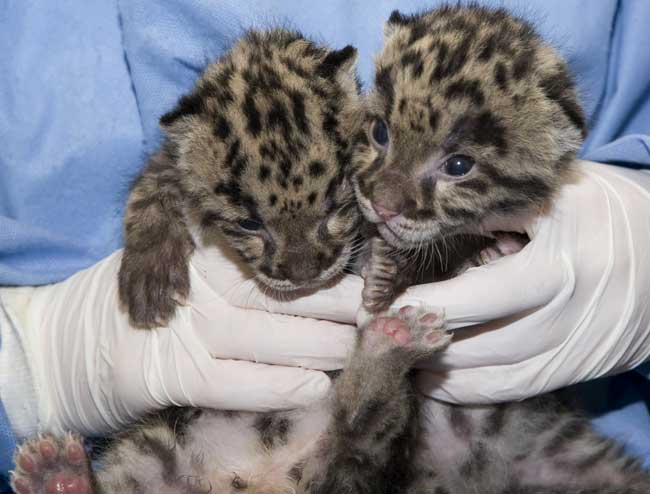
Prehensile-tailed Porcupine
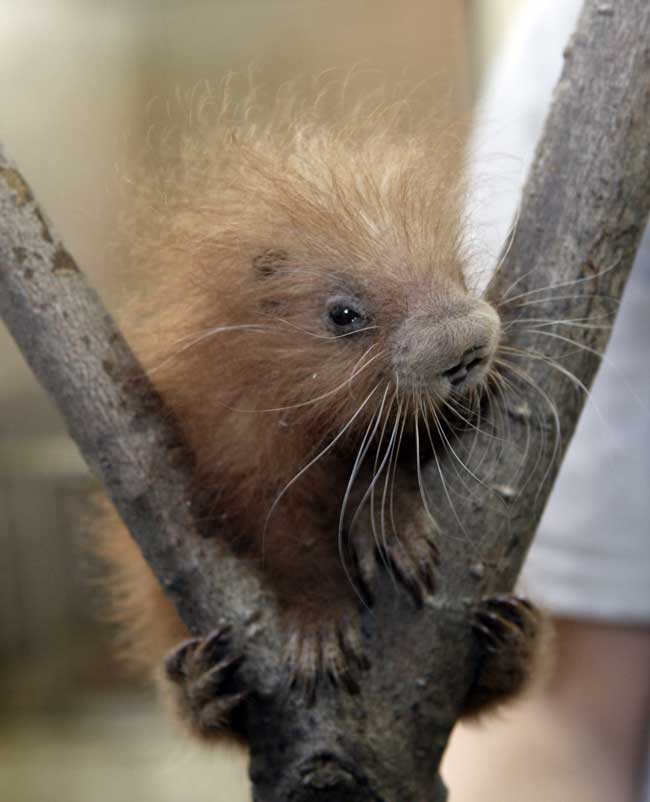
Though they grow up to be decidedly un-cuddly, baby porcupines are comparatively soft. This baby girl prehensile-tailed porcupine was born in April 2005 at the Smithsonian's National Zoo in Washington, D.C.As the babies grow to adult size over about a year, they gradually losetheir red hair and grow stiff, sharp spines. These creatures are rodents native to Central and South America. Their tails ("prehensile" means adapted for grasping or holding) act as fifth limbs to help grab branches while climbing.
Batagur Baska Turtle
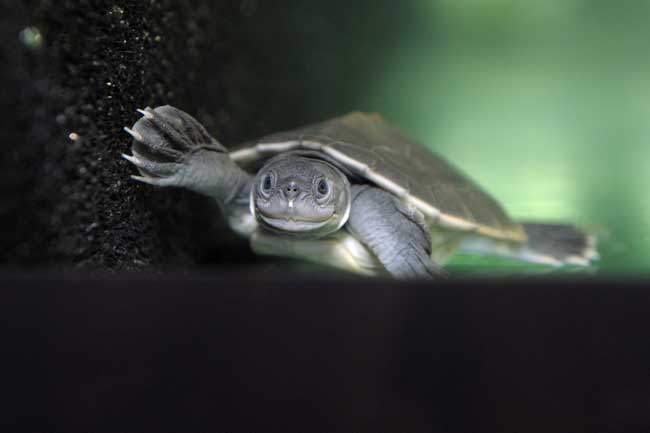
This adorable Batagurbaska turtle is one of only 20 individuals known to exist in the wild and in captivity among this critically endangered species. Six of those, including this baby, live at the Schoenbrunn Zoo in Vienna, Austria. This baby's birth was the first time this species was successfully bred in captivity. At home in the rivers of Myanmar, Thailand, Vietnam, Cambodia, Indonesia, India and Bangladesh, Batagur baska turtles were hunted almost to extinction for their meat and eggs, which are considered a delicacy.
Asian Elephant
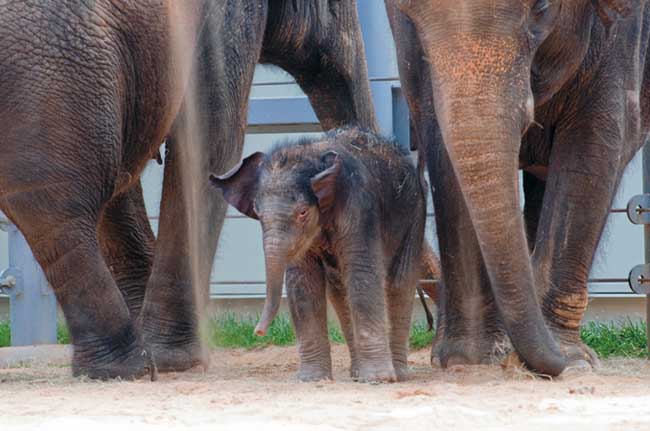
Even newborn elephants are still some of the animal world's heftiest creatures. This baby Asian elephant, named Baylor, was born weighing 348 pounds (158 kilograms) in May 2010 at the Houston Zoo. Mom Shanti endured a pregnancy lasting almost 23 months. About two hours after birth the calf was able to stand on his own.
American Flamingo
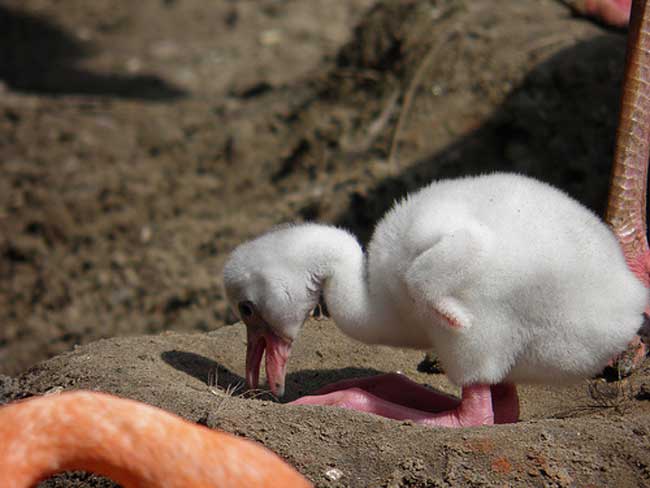
Adult flamingos may be known for their garish colors and lofty grace,but their babies look like little white balls of fur. This chick was born at the Audubon Zoo in New Orleans. Flamingo chicks take between 24 and 36 hours to hatch out of their eggs, which they do by pecking with a special growth on their bill called an egg tooth. This false "tooth" falls off soon after hatching. Meanwhile, their thin-legged mother birds teeter over them.
Malayan Tapir
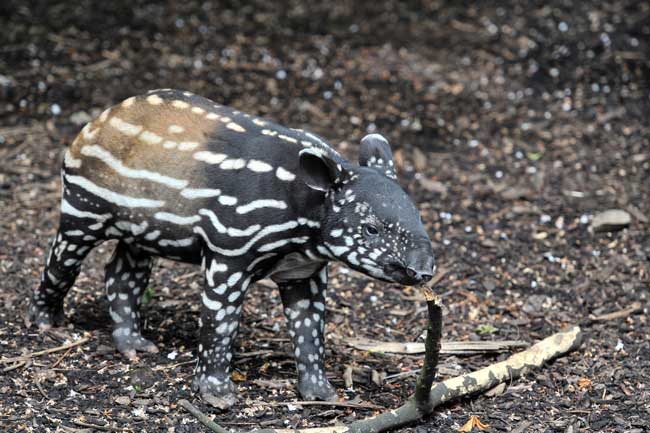
This male baby Malayan tapir called Kamal, whose name means "perfection," was born in April 2010 at the Edinburgh Zoo in Scotland. These pointy-nosed creatures are related to rhinos and horses. Found in the forests of Malaysia, Thailand, Burma and Sumatra, Malayan tapirs are endangered due to habitat loss and hunting. The mammals grow up to look very different than they do when young; instead of a black coat dotted with white spots and stripes, adults have a black body with one thick white band in the middle. Tapirs grow this adult coat when they are around 6 months old.
Orangutan
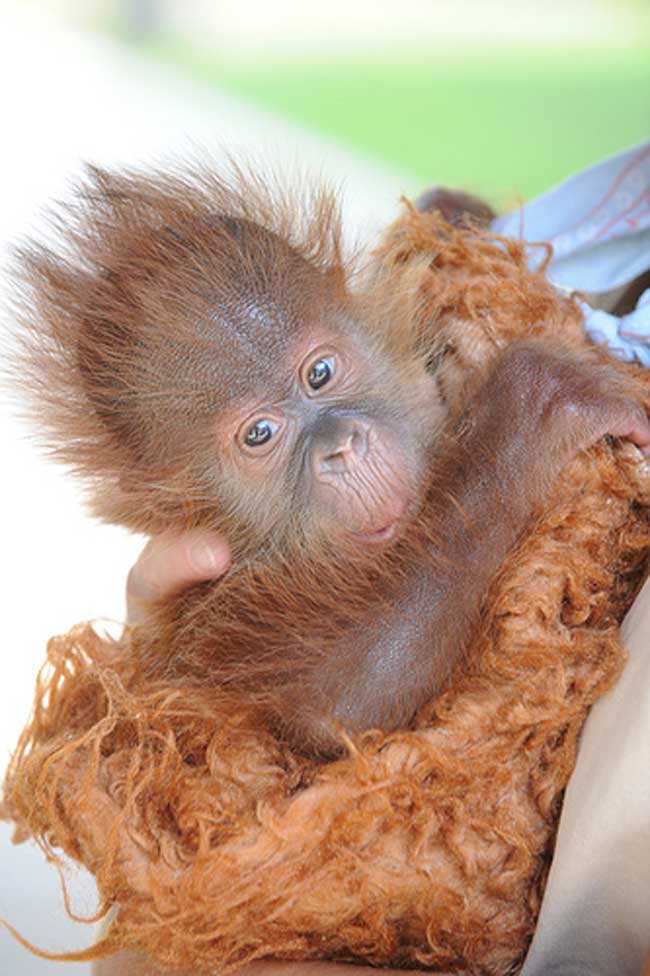
As primates, orangutans are relative cousins of humans, though they're a bit more hairy. This Sumatran orangutan, named Menari, was born at New Orleans' Audubon Zoo in June 2009. In the wild, the species is found only on the Indonesian island of Sumatra, and is endangered due to loss of its natural habitat.
Polar Bear
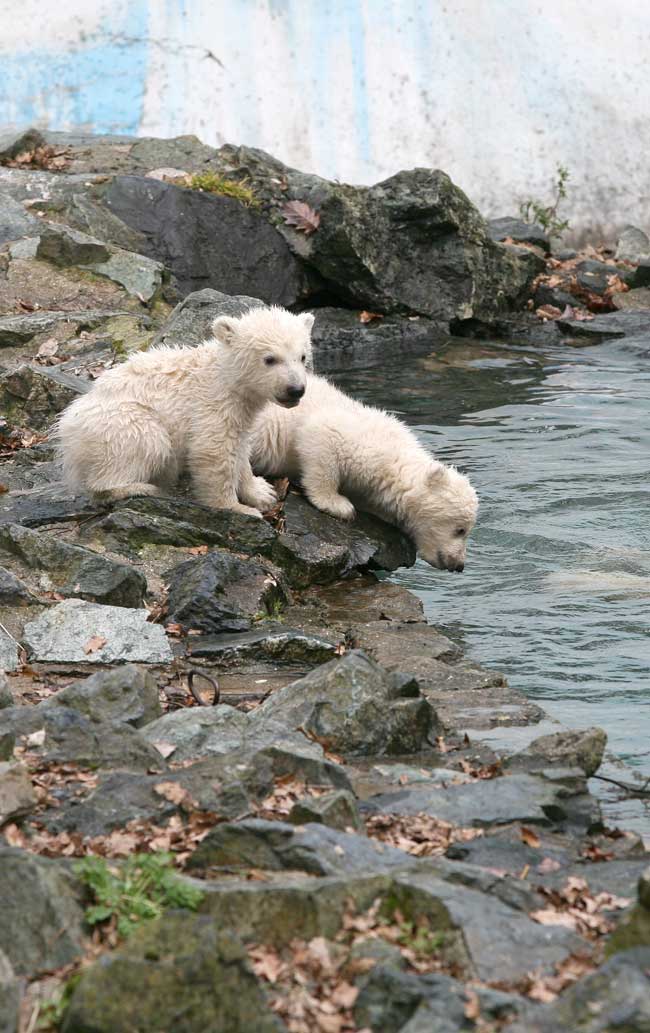
Though they are cuddly creatures when young, polar bear babies grow up to be ferocious predators. They are controversial zoo inhabitants, as many conservationists argue that it's unnatural to breed these violent bears in zoos, rather than in their natural habitat. However, that habitat is swiftly disappearing as the polar bear's home –the arctic ice – is diminishing rapidly due to climate change.
Sign up for the Live Science daily newsletter now
Get the world’s most fascinating discoveries delivered straight to your inbox.
Clouded Leopard
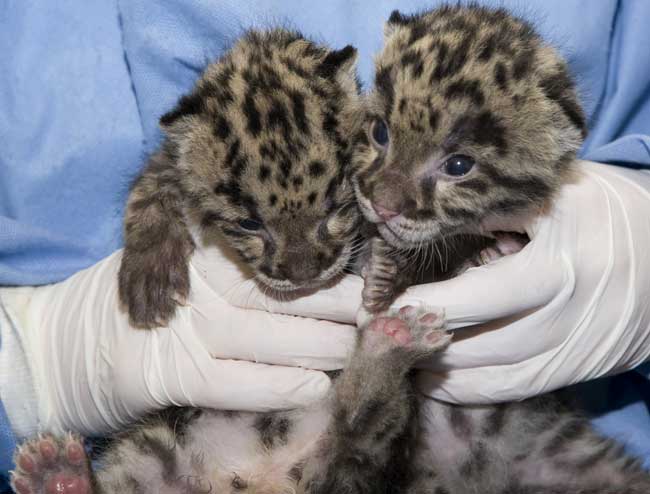
These two male clouded leopard cubs, named Sa Ming ("brave warrior") and Ta Moon ("mischievous child"), were born in March 2009 at the Smithsonian's National Zoo in Washington, D.C. The species gets its name from the shape of the cat's markings, which can look like dark clouds on a tan background. Clouded leopards are native to Southeast Asia and are listed as vulnerable to extinction due to deforestation and hunting.The creatures have been difficult to breed in captivity, so the birth of the cubs was especially exciting to zoologists.
Masai Giraffe
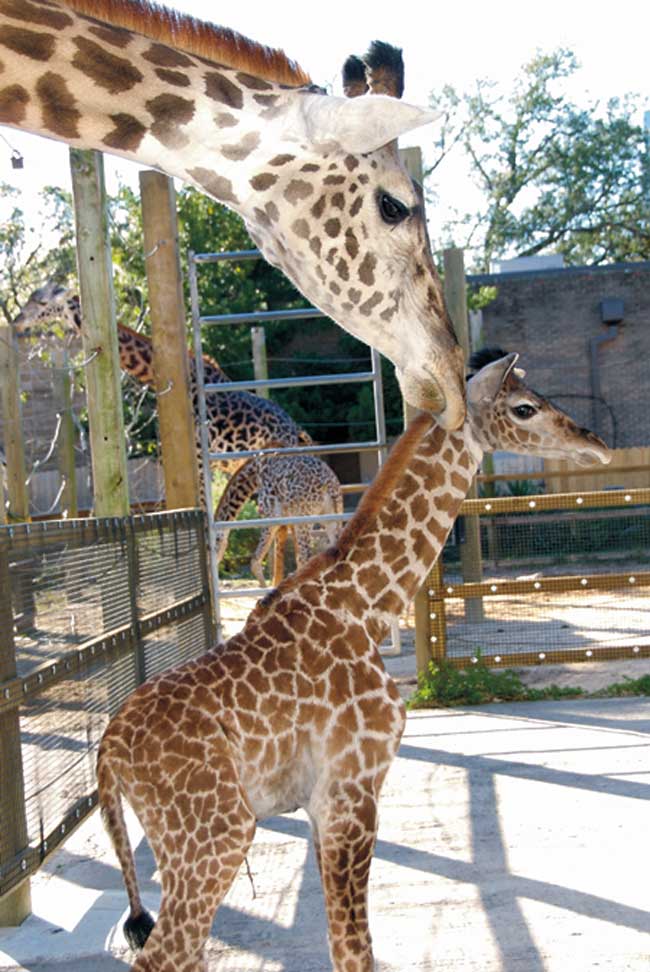
Baby Masai giraffe Miles was born in January 2009 at the Houston Zoo. Giraffes are the tallest living terrestrial animal. While adult males average about 17 feet (5 meters) tall, Miles was born at 5.8 feet (1.8 m) tall – still not bad, compared with us little humans! Miles was able to stand up on his own a little over an hour after his birth.
Gentoo Penguin
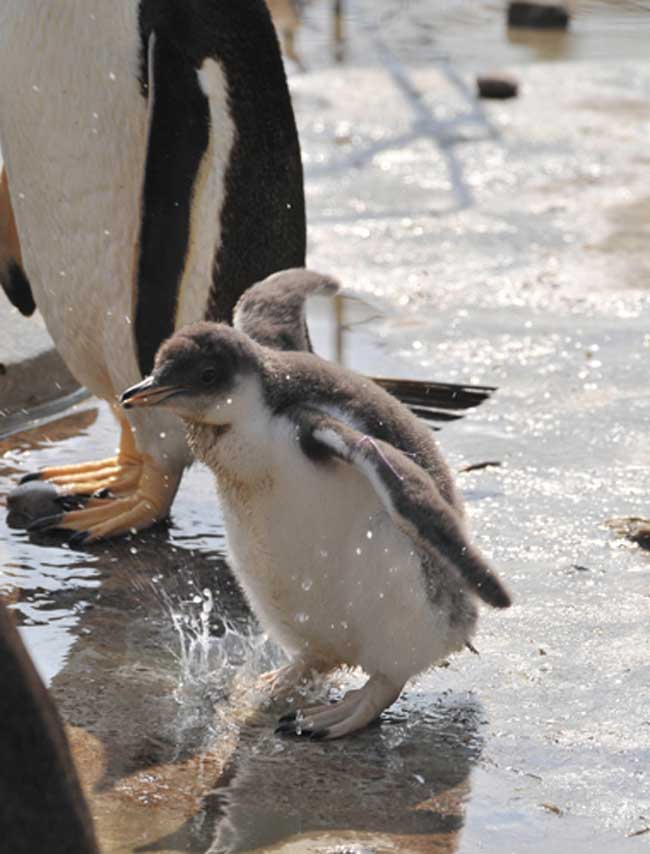
Baby gentoo penguins are basically fuzzier and softer versions of their adult counterparts. This penguin chick was hatched in May 2010 at Scotland's Edinburgh Zoo. Until they are about 3 months old, the chicks are dutifully fed by both mother and father penguins. At that point, they start to grow in their adult feathers and fend for themselves a bit more. These penguins, native to Antarctica, are the fastest known underwater swimming bird.
Giant Panda
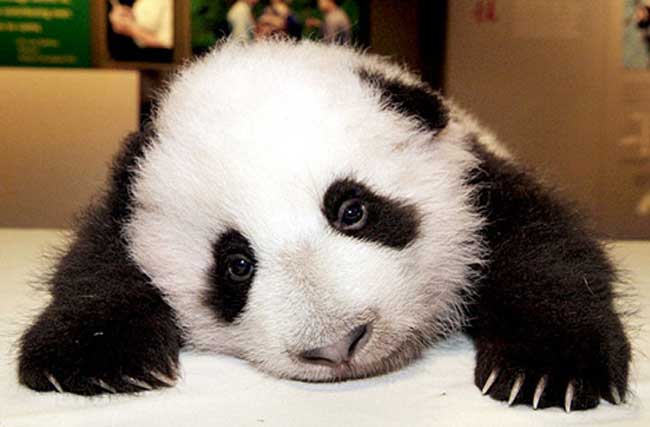
Giant panda Tai Shan is a celebrity in his own right. When he was born at the Smithsonian's National Zoo in Washington, D.C., in July 2005he prompted a 50-percent increase in zoo attendance and a rash of fan Web sites. He earned the nickname Butterstick after a zoo worker described him shortly after birth as about the size of a stick of butter. Because Tai Shan's parents are on lease from China, even though the cub was born in the United States, he still belongs to China by law.In February 2010 Tai Shan boarded a special FedEx cargo jet to his permanent home at the Bifengxia Panda Base in Sichuan, China. In this image Tai Shan is 11 weeks old.










